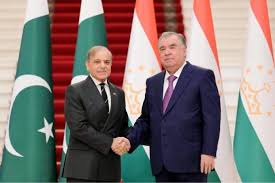China’s Belt and Road Initiative rekindles the spiritual legacy of the ancient Silk Route

A high-profile seminar hosted by the Consortium for Asia Pacific Studies (CAPS) revived scholarly attention to the cultural and spiritual legacy of the ancient Silk Route, placing it within the modern geopolitical context of China’s Belt and Road Initiative (BRI).
Titled “Religion along the Ancient Silk Route: Dialogue and Connectivity in the BRI Era”, the event brought together an international panel of diplomats, scholars, and policy thinkers to discuss the religious and cultural exchanges historically facilitated by the Silk Route—and how China’s BRI seeks to revive these interactions in today’s multipolar world.
In his speech, Professor Muhammad Zia ul Haq highlighted that the long-term success of BRI depends on cultivating cultural empathy and inclusivity. He called for the establishment of more cultural exchange programs, especially among Muslim-majority nations with historical links to China, to rebuild mutual trust and respect.
Adding an international perspective, Professor David Palmer of Hong Kong University observed that the BRI is unlocking new channels of interfaith and intercultural dialogue, particularly in the Global South. He emphasized that the time is ripe for deepening China-Muslim world relations through academic, religious, and artistic collaboration.
Dr. Khalid Rehman closed the seminar by urging institutions to invest in research that connects historical legacies with future strategies. “The Silk Route carried not only goods but ideas and beliefs. Reviving that spirit of harmony and coexistence is essential if the BRI is to fulfill its transformative potential,” he said.
In her comments, Dr Gulshan framed the Silk Route not merely as a commercial pathway, but as a vibrant artery of intercultural dialogue and spiritual exchange. She welcomed participants and emphasized that the seminar would explore how this ancient legacy could inform the BRI’s broader vision of inclusive globalization.
In her comments, Dr. Saira Bibi underscored the ideological dimensions of China’s global rise. “China is no longer merely pursuing economic expansion—it is shaping a new world order grounded in connectivity,” she said. “The BRI is a civilizational initiative, one that fosters intercultural understanding and serves as a diplomatic counterweight to polarization.”





